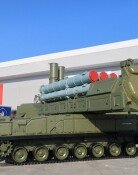Working Conference in Pyongyang on Russian Irkutsk Pipeline Project
Working Conference in Pyongyang on Russian Irkutsk Pipeline Project
Posted September. 06, 2001 09:35,
On September 5, the Ministry of Commerce, Industry and Energy (MOCIE) reported that a working committee will meet in Pyongyang on September 6 and 7 to discuss a feasibility study on running the Russian Irkutsk gas pipeline project through North Korea.
A private sector delegation of six led by Korea Gas Corporation (KOGAS) vice president Kim Jong-Sool arrived in Pyongyang today, according to MOCIE.
In early February, KOGAS had expressed to the North Korean National Economic Cooperation Federation its interest in evaluating the possibility of running the gas pipeline through North Korea as part of the Irkutsk pipeline feasibility study. This meeting was arranged following the North`s recent confirmation of interest.
There are several alternative paths for the pipeline, one of which is the undersea pipeline option that passes through the Yellow Sea (West Sea). Depending on the outcome of discussions with the North, a land-based pipeline passing through North Korea may be added to the list as a viable option.
The Irkutsk gas pipeline project is being jointly undertaken by Korea, China and Russia to develop the Irkutsk reserves and supply natural gas to China and Korea via direct pipeline starting in 2008.
Currently, the three countries are conducting feasibility studies of the project including the path that the pipeline will take. The pipeline construction project, which could begin as early as next year, is estimated to require $10 billion in capital investment and will result in a pipeline length of 4000 kilometers.
Of the confirmed 840 million tons of natural gas in the Irkutsk reserves, Korea will be piping in an average of 7 million annual tons for 30 years, supplying 40 percent of total domestic consumption levels.
In Korea, this project is being undertaken by a consortium of nine companies consisting of KOGAS, the Korea National Oil Corporation, LG Corporation, Hyosung, Daesung Industries, Daewoo Construction, Hyundai Corporation, Daewoo International and Hanwha.
With this option of bringing in the pipeline through the Manchurian Line from Irkutsk through Harbin and Shenyang in China and through 412 km of land in North Korea, the pipeline length will be 4115 km, reflecting a distance savings of 185 km over the underwater option.
Kim Sang-Chul sckim007@donga.com
Headline News
- Ukraine says N. Korea’s first troops arrive in Kursk
- N. Korea begins installing barriers on Donghae Line after 'bombing show'
- K-defense operating profit expected to jump by 200% in Q3
- Seoul City launches DDP rooftop tours, celebrating 10th anniversary
- Ahn Jung-geun’s historic writings return to Korea in 15 years







